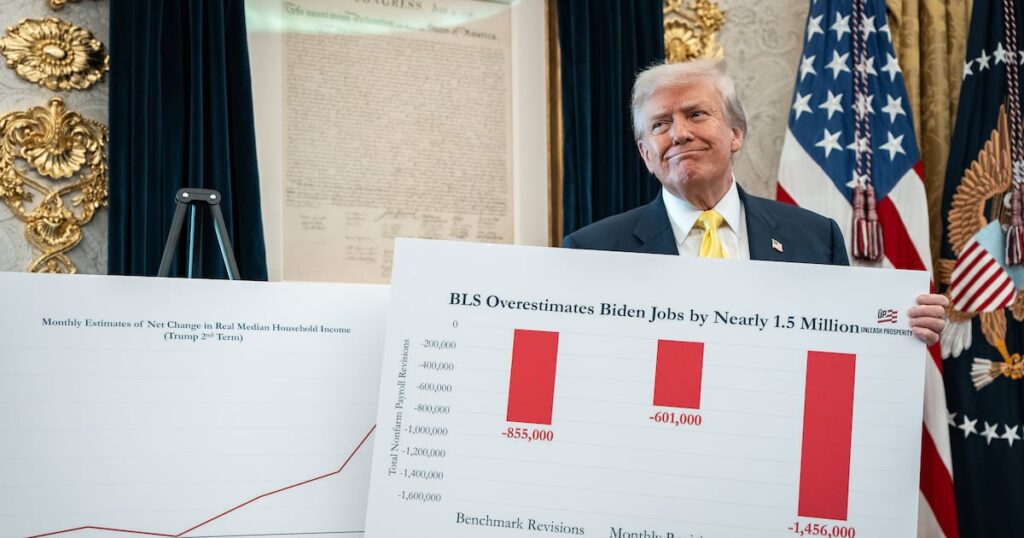In 1897, the Indiana house of representatives attempted to redefine Pi as 3.2, reflecting a humorous yet serious historical lapse in understanding scientific constants. This episode serves as a metaphor for the contemporary political landscape under Donald Trump, who frequently disregards established scientific facts in favor of personal beliefs and opinions. Trump has exhibited a tendency to accept favorable results while dismissing unfavorable ones as “rigged,” which undermines trust in crucial institutions like the Bureau of Labor Statistics, from which he recently fired the head for not aligning with his narrative.
This approach raises concerns about the integrity of economic data, drawing parallels to countries like Argentina and Greece that faced severe consequences for manipulating economic statistics. Trump’s administration has also put public trust in independent government bodies at risk, as indicated by widespread distrust cultivated among his supporters.
During the Covid-19 pandemic, Trump’s decision to appoint anti-science advocate Robert Kennedy as health secretary and his actions against mRNA vaccine funding exemplify his administration’s anti-science stance. Despite the success of mRNA vaccines in saving lives, Kennedy has spread misinformation about them, which could have far-reaching public health consequences.
Additionally, Trump’s administration has actively worked against climate science, cutting funding and removing references to climate change from government channels. Proposed federal science budgets are slashed significantly, undermining crucial research efforts. Although Trump has yet to target Pi specifically, the article suggests a troubling trend of anti-science policies that may continue to escalate.



